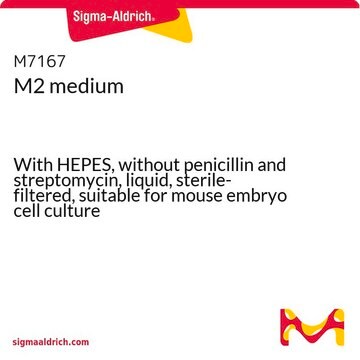C8554
Chorionic gonadotropin human
lyophilized powder, suitable for mouse embryo cell culture
Synonym(s):
Choriogonin, HCG
About This Item
Recommended Products
biological source
human urine
Quality Level
sterility
aseptically processed
form
lyophilized powder
potency
≥5,000 I.U. per mg
mol wt
37.9 kDa
apparent mol wt 37.9 kDa by SDS-PAGE
drug control
Home Office Schedule 4.2
technique(s)
cell culture | embryo: suitable
impurities
HBV,HCV and HIV, tested negative
solubility
H2O: 1 mL/vial
saline: 1 mL/vial
UniProt accession no.
shipped in
dry ice
storage temp.
−20°C
Gene Information
human ... CGA(1081)
Looking for similar products? Visit Product Comparison Guide
General description
Application
Biochem/physiol Actions
Mice: i.v. 0.2 (7.7) I.U.; i.p. 0.3 (11.5) I.U.; s.c. 0.7 (26.9) I.U.
Syrian hamsters: i.v. 1.0 (9.5) I.U.; i.p. 1.8 (17.1) I.U.; s.c. 2.6 (24.8) I.U.
Rats: i.v. 1.3 (4.6) I.U.; i.p. 3.5 (12.3) I.U.; s.c.7.5 (26.3) I.U.
Using PMSG, the ED50 values per animal and per body weight (kg) in parenthesis were as follows:
Mice: i.v. 0.8 (30.8) I.U.; i.p. 2.0 (76.9) I.U.; s.c. 2.8 (107.7) I.U
Syrian hamsters: i.v., 3.6 (34.3) I.U.; i. p., 8.0 (76.2) I.U.; s.c., 13.2 (125.7) I.U.
Rats: i.v., 6.0 (76.8) I.U.; i p., 20.8 (73.0) I.U.; s.c., 76.8 (269.5) I.U.
Certificates of Analysis (COA)
Search for Certificates of Analysis (COA) by entering the products Lot/Batch Number. Lot and Batch Numbers can be found on a product’s label following the words ‘Lot’ or ‘Batch’.
Already Own This Product?
Find documentation for the products that you have recently purchased in the Document Library.
Customers Also Viewed
Articles
Mouse embryo media and embryo validated reagents for transgenic mouse embryo culture
Our team of scientists has experience in all areas of research including Life Science, Material Science, Chemical Synthesis, Chromatography, Analytical and many others.
Contact Technical Service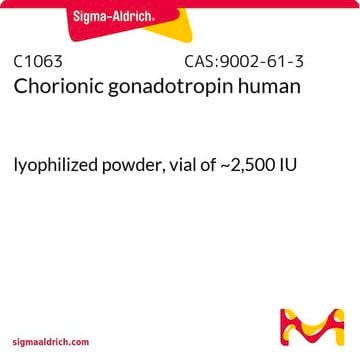

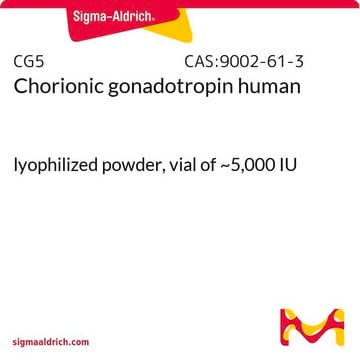
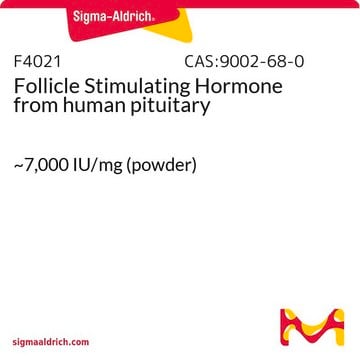
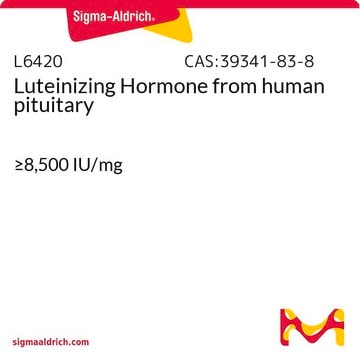
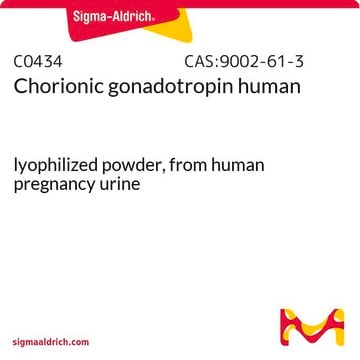

![[des-Gly10, D-Ala6]-LH-RH ethylamide acetate salt hydrate ≥97% (HPLC), powder](/deepweb/assets/sigmaaldrich/product/structures/150/195/13e08743-1592-4a6b-937d-559f571a2193/640/13e08743-1592-4a6b-937d-559f571a2193.png)
